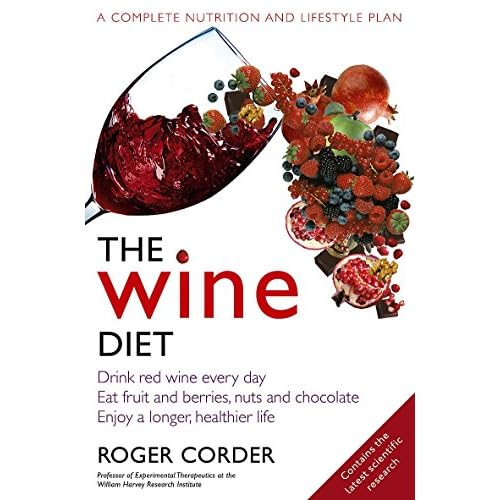I've been researching a piece today on a medical doctor in Australia who has been marketing a range of resveratrol-supplemented wines. It's the sort of subject that is liable to set me ranting.
This is because I hate the abuse of science, and one of the primary areas in which science is abused (in my opinion) is in the field of dietary supplements. And, again, in my opinion, I think that to supplement wine with resveratrol, is moving beyond the current state of good science on this topic.
What's the story? A few years ago some really interesting reports turned up in the literature showing that resveratrol, which is a phytoalexin (plant defence molecule) found in red wine, can affect signalling molecules called sirtuins, which act as a metabolic switch.
This switch can shift the metabolism of a wide range of organisms, from yeasts to mammals, between two different strategies: live short and fast, or long and slow.
It seems that nature has built-in these two different strategies so that organisms can adapt to environments of either feast or famine. Normally, caloric restriction - the only intervention shown to extend lifespan across a range of different organisms - will result in a slow-burn sort of metabolism where organisms just hang in there, waiting for things to improve.
Resveratrol signalling, at least in experimental studies, seems to mimic caloric restriction, and it has been suggested that it could be protective against a range of age-related diseases, including cancer. Scientists are taking this seriously, and there is currently a lot of interest in this molecule, although there are issues with dose and bioavailability (it seems you need more than wine contains for there to be an effect, and also that while it's rapidly taken up by the body, it is also rapidly metabolized).
But while drug development based on initially promising findings is a long road that requires researchers to substantiate their claims by proving safety and efficacy of potential drug targets, the dietary supplements industry isn't bound by such restrictions.
Hence, if you search the internet, you'll find many companies already offering resveratrol-based supplements that claim to have amazing health benefits. I think this is wrong. It's far too early to be making claims for compounds such as resveratrol and marketing resveratrol-enhanced wines in the way that's currently being attempted. The science simply isn't there yet.
I also think it's a mistake to market wine as a 'nutriceutical' in this way. There's good evidence that moderate wine consumption may be good for health; so why the need to add extra things to wine?
Let the research scientists do their work. There are good reasons why the pharmaceutical industry is heavily regulated and that consumers are protected from potentially false claims or dangerous medicines. It's high time that the dietary supplements industry was subjected to the same rigorous scrutiny, because it's an industry that's making billions of pounds a year from peddling products whose efficacy is largely unsubstantiated.
I'm going to stop now because I'm beginning to rant.
Labels: resveratrol, wine and health


 The web log of wine journalist Jamie Goode. Feel free to nose around; your comments are welcome
The web log of wine journalist Jamie Goode. Feel free to nose around; your comments are welcome 
